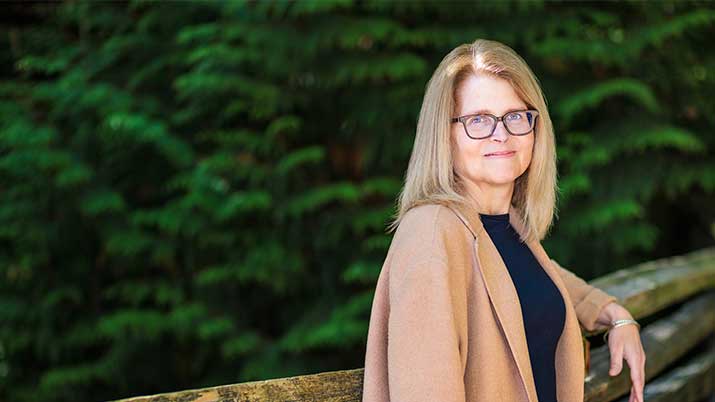CBC and NPR investigative reporter Sandra 

Bartlett has 20 years of experience under her belt at CBC and Radio-Canada, including 13 years as a national reporter and producer.
“The [CBC] radio newsroom did not really have an investigative unit, it was more of an environment,” Bartlett explained. “They asked me to be a producer for [the beginnings of that] environment.” That started her path into investigative work.
After CBC, she worked for two years in Washington, D.C. as an investigative reporter and producer for NPR. Her collaborative work at NPR led her to work with PBS Frontline, ProPublica, the Center for Investigative Reporting, and the Center for Public Integrity
She has spent the last three years in Toronto, splitting her time between CBC’s podcast Someone Knows Something, radio documentaries including one on the deaths of Samsung factory workers, and a documentary on cybercrime.
She’s a member of the International Consortium of Investigative Journalists (ICIJ) where she wrote and produced in-depth investigative projects ranging from offshore money in Secrecy for Sale to illegal use of human tissue in Skin and Bone.
Mentoring burgeoning reporters
Bartlett brought her vast experience and expertise as reporter, producer, writer, and editor to co-chair the Global Investigative Journalism Conference in Toronto, speaking to over 650 journalists from 30 countries. She says her wide range of experiences has made her into the investigative reporter and producer she is today.
“My career has never been a straight line of reporting or straight line of producing,” she said. “Throughout my career, I’ve gone back and forth and it’s given me lots of opportunities.”
Her work as a producer, working with reporters in the field, led her to be a mentor to many burgeoning reporters.
“I met a lot of reporters who wanted to do investigative work for the first time. I worked with young journalists and helped them on their first stories, [being] their mentor,” Bartlett said. These mentorships led to her interest in helping journalist students hone their work.
“I’m interested in prompting the students to look around their community and think about stories that maybe aren’t being covered in-depth,” Bartlett said of her course. “I feel it’s really important they have a successful experience in their first investigative project because it often seems quite daunting. I’m looking forward to helping them through that and, at the end, knowing that they think: Hey, I know how to do this.”
Bartlett wants the classroom to be collaborative. She wants students to come full of questions and ready for discussion.
“I hope the students will come with burning questions of I keep wondering about this; I’d like to know more about this; I don’t know why that happened,” she said.
“Collaboration is going to be a really big part of investigations in the future. It’s night and day how it’s changed, even in the last five years. Big newspapers, the big networks, they want to collaborate with smaller outlets and freelancers. That’s a significant part of the future for investigative journalists.”


